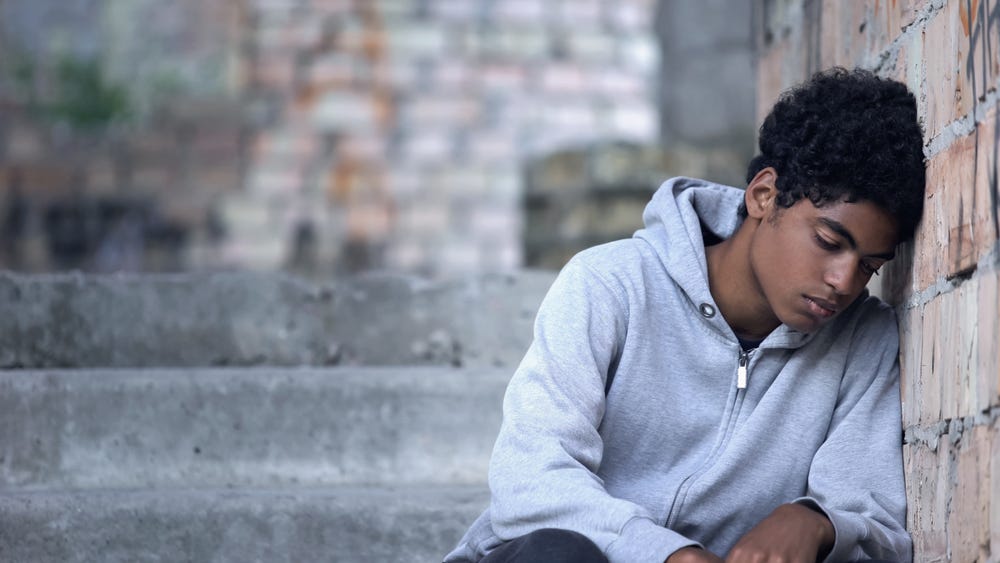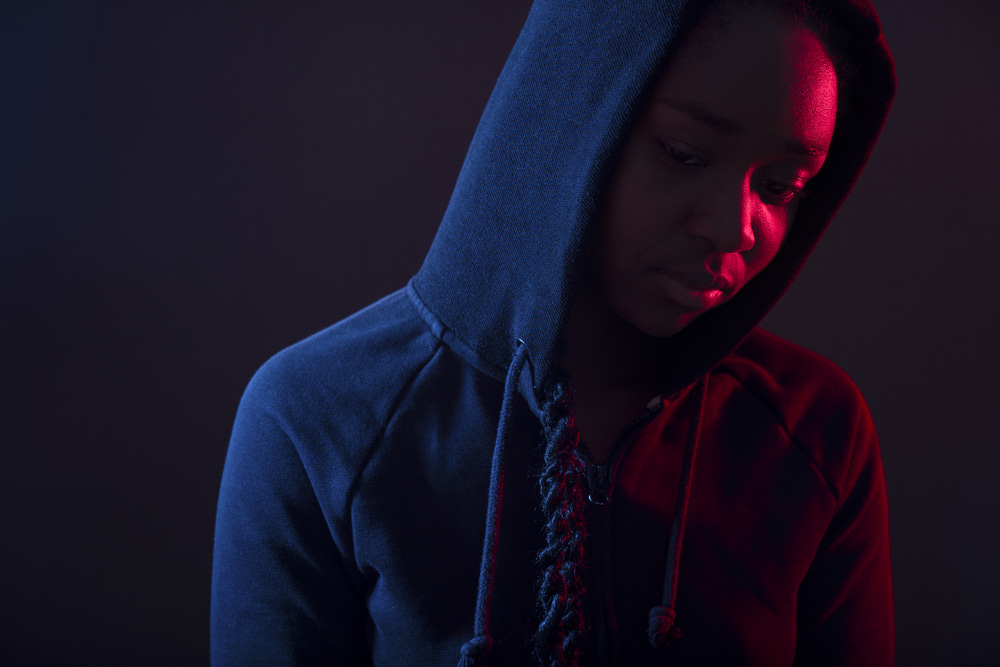Are Antidepressants Quietly Changing How Teens See Their Sexuality?
At just 19, Nick found himself navigating the turbulent waters of moderate anxiety and depression. And after only a handful of visits, a psychiatrist prescribed him Trintellix, a well-known antidepressant in the selective serotonin reuptake inhibitor (SSRI) family, which also boasts heavyweights like Prozac.
At the time, it felt like a straightforward solution to his mental health struggles, a decision that seemed relatively routine amid the chaos of young adulthood. But when he decided to stop taking the medication six years later, things took a surprising turn.
Nick quickly realized something was off - he began to notice a disturbing loss of sensation in his genitals, a change that progressed to near-total numbness over the following weeks. This was not just a minor inconvenience; it became a serious issue that altered his life in ways he never anticipated. The thrill and drive he once felt were replaced by an unsettling emptiness, leaving him to struggle with the long-lasting consequences of a medication that had initially seemed like a lifeline.
Marie faced something similar when she started taking fluoxetine, the generic form of Prozac, at just 15 years old. It was a key part of her treatment plan in an outpatient program for an eating disorder, aimed at helping her find some balance in her life. However, like many others who have taken SSRIs, she realized that the medication came with its own set of challenges. While it helped ease some of the anxiety and depression tied to her condition, it also took a toll on her sexuality.
“I was in touch with initial sparks of sexual energy relatively young,” she told The New York Times, recalling having crushes as early as six or seven years old. Just before taking the medication, she was captivated by a handsome, charismatic athlete at school and she remembered the excitement and daydreams he inspired. But after starting the medication, she noticed that her feelings of infatuation quickly disappeared.
“And then,” Marie said, “I realized, Oh, I’m not having new crushes.” She didn’t understand that the medication might be the reason. “I wasn’t informed about sexual side effects.”
Marie told The Times she has PSSD, or post-SSRI sexual dysfunction, a controversial and often complex condition. She also shared how her loss of sexuality lingered long after she stopped taking the medication.
While the sexual side effects of SSRIs are widely recognized - which include a drop in desire, erectile dysfunction for men and challenges with arousal and orgasm for women - the prevailing belief has been that these issues resolve once the medication is out of the system. But Nick and Marie’s cases - and many others - challenge this notion because they continue to grapple with persistent dysfunction that complicates their relationships and self-image.
The Times reports that some psychiatrists argue that what these youngsters and others like them are experiencing may not be a direct result of the drugs but rather a continuation of the underlying issues - like depression and anxiety - that initially led to the prescription. These mental health challenges can themselves inhibit sexual function, muddying the waters between the effects of the medication and the original problems.
Thankfully, there is a slow but noticeable change happening in how professionals recognize PSSD. The latest version of the Diagnostic and Statistical Manual of Mental Disorders (DSM-5) mentions that “in some cases, sexual problems caused by serotonin-reuptake inhibitors may persist” even after stopping the medication. Similar warnings have been issued by the European Medicines Agency, as well as regulators in Canada, Australia, and Hong Kong. In the United States, Prozac includes a warning about this issue and consumer advocacy groups are urging the Food and Drug Administration to make sure all SSRIs, which are the most commonly prescribed antidepressants, have these warnings. More than 500 case reports about PSSD have been published by clinicians in academic journals. A 2020 editorial in The British Medical Journal stated, “Post-S.S.R.I. sexual dysfunction is underrecognized and can be debilitating both psychologically and physically.”
Additionally, research on PSSD has been limited but raises concerns, especially since more individuals are being prescribed antidepressants. A 2023 study by researchers from Howard University and Tel-Aviv University, published in the Annals of General Psychiatry, examined men seeking help for erectile dysfunction (ED). The researchers looked at men who had taken selective serotonin reuptake inhibitors and compared them to those who had not. The results were surprising. Even when considering factors like age and other health issues, the study showed that men who had used SSRIs had a “significant” higher risk of developing ED. The researchers estimated that about 1 in 216 men who took these antidepressants might experience PSSD.
That being said, the impact of SSRIs on young people’s sexuality in particular is becoming increasingly important to understand, especially since the number of prescriptions for these drugs among the youth is notably rising. In the U.S., about two million teenagers aged 12 to 17 are taking SSRIs. A large study published in 2024 by the American Academy of Pediatrics tracked how many people in this age group filled prescriptions for antidepressants from 2016 to 2022: during that period, the number rose by 69%, likely due to the emotional effects of the COVID pandemic, although there was already an upward trend before that. A survey conducted in 2023-24 with over 100,000 college students found that 22% had taken an antidepressant in the past year, a jump from 8% in 2007.
What actions are being taken to support our children?
Dr. Tami Benton, who heads the department of child and adolescent psychiatry and behavioral sciences at the Children’s Hospital of Philadelphia, brings a wealth of experience to the conversation around SSRIs and their impact on young people’s sexual health. In a recent interview with her and her colleague, Dr. Penelope Carter, it became clear that the topic of sexual side effects is critical, yet often overlooked, when prescribing these medications to adolescents.
Benton stressed the importance of addressing sexual health openly, stating, “I raise the sexual side effects, whether you’re having sex or not. Young people frequently engage in masturbation and other sexual practices, and we know that the SSRIs can impact the ability to have an orgasm, can impact your sexual abilities and experience - we have to ask adolescents about it.”
Benton knows that many adolescents may not readily bring up these concerns, making it the responsibility of healthcare providers to initiate these discussions. By doing so, they can help ensure that young patients are informed about the possible side effects of SSRIs, allowing them and their parents and caregivers to make better decisions about their mental health treatment while considering their overall well-being. She says that the open dialogue not only builds trust between the clinician and adolescent but also empowers young people to advocate for their own sexual health as they navigate the complexities of adolescence and medication.
Benton and Carter both discussed the importance of not hurrying to prescribe medication to their patients and highlighted the important role that therapy plays in treatment.
Carter pointed out that the intense loneliness caused by depression or anxiety, along with the risk of self-harm, can influence the decision to use medication.
Benton mentioned that, among the teenagers she recently treated with SSRIs, sexual side effects were rarely reported. This finding was different from what adult studies suggested. At one point in our conversation, she wondered, “Are we doing a good job of asking about sexual side effects?”
Meg Jay, a clinical psychologist and professor of human development at the University of Virginia, is increasingly worried about the over-prescription of medications to young people, even though these drugs have serious side effects.
“There’s definitely a problem,” Jay shared in a recent interview - she specializes in patients in their 20s. “Physicians are too quick to medicalize normal young adult struggles … In 15 minutes, they don’t get to hear much about the context.”
Over the course of her 25-year career, she’s seen a concerning trend where her patients are being prescribed antidepressants at younger and younger ages. It’s a bit unnerving, she explains, especially since there’s not a ton of research out there about how these medications might affect developing brains. She often finds herself wondering if we’re jumping the gun, putting kids on meds that could have unknown long-term effects. While she understands the desperation that comes with mental health struggles, she can’t help but feel that we need to tread carefully.
“The studies that were done for SSRIs to be approved by the FDA were not done on children, they were done on adults,” she said. “But now it’s much more common for tweens and teens to be prescribed by medications than it used to be.”
David Healy, a specialist in mental health medications and a former psychiatry professor in Wales and at McMaster University in Ontario, Canada, agrees.
He shared with The Post that in the past two years alone, he has known more than a dozen individuals, many of them young, who ended their own lives due to the overwhelming distress caused by PSSD.
If your teen is facing a mental health crisis, please remember that you are not alone in this challenging time and help is readily available. The 24/7 National Suicide Prevention Lifeline, which can be reached at 1-800-273-8255 or by visiting SuicidePreventionLifeline.org, offers compassionate support and guidance for both you and your child.
Several Black-led organizations also offer support for teens facing mental health crises, including the Steve Fund, which focuses on young people of color, and the AAKOMA Project, which helps diverse teenagers and their families. The Boris Lawrence Henson Foundation works to increase access to mental health care and the Black Emotional and Mental Health Collective (BEAM) facilitates connections for people of color with mental health professionals.
For immediate crisis support, any teen can call or text 988 to reach the 988 Suicide & Crisis Lifeline.




